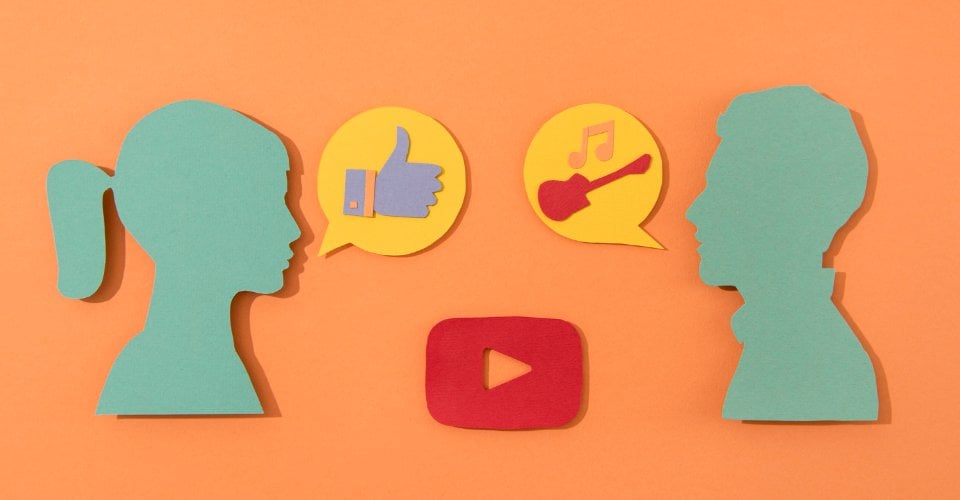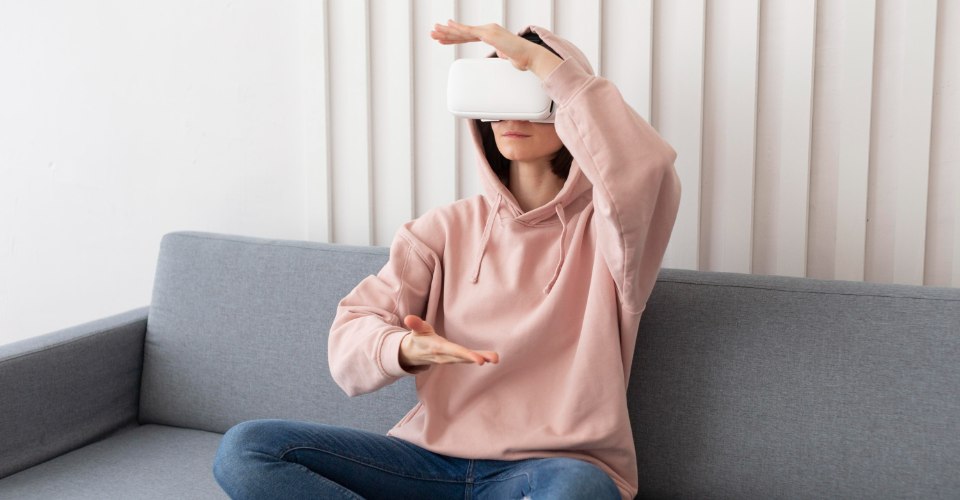You sit at a cafe, waiting for a friend. You check your phone, then scroll through social media to pass the time.
Why are we so drawn to our smartphones?
Research indicates that it’s not just about convenience. Our emotional attachment to these devices may stem from our attachment styles.
A study in BMC Psychology reveals how adult attachment styles influence our emotional bonds with smartphones. This research provides insight into the psychological factors driving our digital habits. It helps explain why some people feel a stronger connection to their phones than others.
Understanding Emotional Attachment and Attachment Theory
Emotional Attachment
Emotional attachment refers to the bond people develop with others or objects that provide comfort and support. This bond plays a significant role in human behavior and shapes our interactions and relationships.
The Basics of Attachment Theory
Attachment theory, introduced by John Bowlby, highlights the significance of early bonds with caregivers. These connections shape our emotional growth and influence our relationship dynamics throughout life.
Key points include:
- Early attachments affect our sense of security and self-worth.
- They determine how we approach intimacy and dependence in future relationships.
Bowlby identified four main attachment styles. These styles guide how individuals interact socially and emotionally. Understanding these can help you reflect on your own relationship patterns.
- Secure Attachment
Individuals with a secure attachment style find a balance between intimacy and independence. They build trust in others and cultivate healthy relationships.
These individuals maintain emotional stability. They seek comfort in relationships when necessary but do not rely on others excessively.
Research indicates that around 50-60% of people exhibit a secure attachment style. This suggests it is the most prevalent and healthiest way to connect with others. - Anxious Attachment
People with an anxious attachment style often feel insecure and rely heavily on others for validation and support.
They frequently fear abandonment or rejection, which can lead to intense emotional reactions and clinginess in their relationships.
These individuals may constantly worry about their partner’s commitment, often misreading behaviors as indications of rejection.
Research indicates that 20-25% of people display an anxious attachment style, which can create obstacles in building stable and trusting relationships. - Avoidant Attachment
Individuals with an avoidant attachment style value self-reliance and often steer clear of emotional closeness.
They may find intimacy challenging and struggle to express vulnerability or depend on others.
These individuals often suppress their emotions, equating independence with strength.
Research indicates that about 20-25% of people exhibit an avoidant attachment style, which can hinder their ability to form deep, lasting connections.
Consider how this attachment style affects your relationships. Are you comfortable with vulnerability? How does your approach to independence shape your connections with others? - Disorganized Attachment
A disorganized attachment style blends characteristics of anxious and avoidant attachment.
People with this style display inconsistent behaviors. They may seek closeness one moment and push others away the next.
This pattern often originates from early childhood trauma or neglect. Such experiences create confusion about forming connections with others.
Research indicates that around 5-10% of individuals have a disorganized attachment style. This style frequently correlates with psychological distress and challenges in relationships.
Consider how your attachment style affects your interactions. Are you aware of your patterns? Understanding this can lead to healthier connections.
The Psychological Impact of Emotional Attachment
Emotional attachment can significantly impact mental health, especially when it becomes unhealthy. Over-reliance on people or objects for emotional support can lead to several issues:
- Increased Anxiety: Anxious attachment often results in constant worry about relationships, with fears of rejection or abandonment.
- Depression: Insecure attachment can foster feelings of isolation and low self-worth, which may lead to depression.
- Difficulty in Relationships: Anxious and avoidant attachment styles create challenges in maintaining healthy relationships, leading to communication breakdowns and emotional disconnection.
Unhealthy attachment patterns also affect physical health. Research indicates that individuals with insecure attachment styles experience higher stress levels and are more susceptible to chronic conditions like heart disease and diabetes.
Unhealthy Attachment and Its Effects
Unhealthy attachment occurs when emotional bonds become dependent, imbalanced, or dysfunctional. This can show up in several ways:
- Emotional Dependence: You might find yourself needing constant validation from others, which can erode your self-confidence.
- Obsessive Behaviors: You may fixate on people or objects, like smartphones or social media, harming your personal well-being.
- Impaired Emotional Regulation: You struggle to manage your emotions on your own, leaning too much on others for comfort.
The Link Between Attachment Styles and Smartphone Use
1. Anxious Attachment: The Need for Constant Connection
Attachment theory highlights how early experiences shape our emotional connections, impacting relationships and behaviors, including our reliance on technology.
People with anxious attachment styles often seek reassurance and validation. This need extends to their interactions with smartphones.
The Role of Emotional Attachment to Smartphones
Smartphones provide constant connection, meeting the psychological need for reassurance. For those with anxious attachment, these devices become a coping mechanism for emotional vulnerabilities. Access to messages, social media, and notifications offers immediate validation, easing feelings of insecurity.
Research Insights: Attachment Styles and Smartphone Use
Studies show clear links between attachment styles and smartphone dependency:
- High Dependency Rates: About 70% of individuals with anxious attachment rely more on their phones compared to those with secure or avoidant styles.
- Anxiety Levels: This group often experiences increased anxiety when separated from their devices, indicating an unhealthy attachment.
- Emotional Buffer: Smartphones serve as a digital buffer, helping to reduce feelings of rejection or loneliness.
Consider how your attachment style influences your smartphone use. Are you relying on your device for validation?
Unhealthy attachment to smartphones can have serious consequences.
You might experience:
- Increased anxiety and stress when you can’t access your device.
- Poor sleep quality from using your phone before bed.
- Challenges in face-to-face interactions, which can harm personal relationships.
To create a healthier balance, consider these strategies:
- Schedule regular phone-free times throughout your day.
- Focus on in-person interactions to build stronger connections.
- Practice mindfulness to manage underlying anxieties.
Understanding your attachment style can help you develop better habits. This can reduce your reliance on technology and improve your emotional well-being.
2. Avoidant Attachment: A Complex Relationship
The Psychological Impact of Avoidant Attachment
Avoidant attachment significantly influences emotional health and relationship dynamics.
Challenges in Intimacy
- Avoidant individuals often find it hard to form deep emotional bonds.
- This struggle can lead to feelings of isolation over time.
Dependence on Control
- Many rely on technology for controlled communication.
- This reliance can reinforce unhealthy attachment behaviors.
- It perpetuates avoidance of emotional vulnerability.
Key Insights
- Avoidant attachment often links to higher smartphone dependency for non-social functions.
- A notable percentage report discomfort in expressing emotions, even online.
Technology can provide a sense of independence. Yet, it may also reinforce patterns that limit emotional growth.
The Psychological Impact of Avoidant Attachment
Avoidant attachment significantly influences emotional health and relationship dynamics.
- Challenges in Intimacy: People with this attachment style often find it hard to create deep emotional connections. This struggle can lead to feelings of isolation over time.
- Dependence on Control: Many avoidant individuals rely on technology for communication. This controlled interaction can reinforce unhealthy attachment behaviors and keep them from facing emotional vulnerability.
While technology offers a sense of independence, it can also strengthen patterns that hinder emotional growth.
Therapy can be a valuable tool for those with avoidant attachment. It can help them build healthier emotional connections and develop more balanced relationships.
3. Secure Attachment: Balanced Usage of Smartphones
Attachment theory offers valuable insights into how our early relationships influence our emotional and behavioral patterns as we grow. One key attachment style that affects smartphone usage is the secure attachment style. Those with secure attachments tend to have a healthy emotional connection and balanced behaviors, which includes moderate smartphone use.
Here are some characteristics of secure attachment:
- Emotional Regulation: These individuals feel at ease with independence and trust in their relationships.
- Low Dependency: They rely on technology for practical needs without becoming overly emotionally attached.
- Flexibility: They can disconnect from their devices without feeling anxious.
Reflect on your own attachment style. How does it influence your relationship with technology?
Statistical Insights
A 2022 study revealed that 68% of securely attached individuals use smartphones mainly for practical purposes like work and communication. In contrast, only 42% of those with insecure attachment styles do the same.
Research in the Journal of Psychological Impact shows that people with secure attachment styles spend 30% less time on screens daily compared to those with anxious or avoidant attachment styles.
Psychological Benefits
Healthy smartphone use among securely attached individuals leads to:
- Better mental health: They experience lower rates of depression and anxiety linked to overuse.
- Stronger interpersonal relationships: They prioritize face-to-face interactions, which strengthen real-world connections.
- Enhanced productivity: Balanced usage helps maintain focus and complete tasks.
Understanding secure attachment styles and their impact on technology use can promote healthier habits. This approach reduces the emotional and psychological risks associated with excessive device reliance.
4. Disorganized Attachment: A Mixed Pattern
Attachment theory highlights how our early relationships influence emotional bonds throughout our lives. Among the four attachment styles, disorganized attachment is notable for its unpredictability and inconsistency. This style can manifest in various ways, including interactions with smartphones.
Disorganized attachment arises when caregivers provide both comfort and fear, leading to confusion in the child. Individuals with this attachment style often display conflicted behaviors. They seek connection but simultaneously fear rejection or harm.
Consider how this might affect your relationships today. Do you find yourself drawn to others yet hesitant to engage fully? Reflecting on these patterns can lead to greater self-awareness and healthier connections.
Attachment theory shows how early relationships shape our emotional connections throughout life. Disorganized attachment stands out due to its unpredictability and inconsistency. This style can appear in different aspects of life, including how we interact with technology.
Disorganized attachment develops when caregivers offer both comfort and fear, creating confusion for the child. People with this attachment style often exhibit mixed behaviors. They crave connection but also fear rejection or harm.
Think about how this affects your relationships now. Do you feel attracted to others but struggle to engage completely? Reflecting on these patterns can enhance your self-awareness and lead to healthier connections.
Disorganized attachment can significantly affect emotional well-being. It often leads to:
- Increased anxiety and depression.
- Difficulty in forming and maintaining healthy relationships, both online and offline.
- An unhealthy reliance on technology for connection.
Research indicates that around 20-25% of adults display traits of disorganized attachment. This group frequently reports problematic smartphone use, which links to higher stress and emotional instability.
5. Psychological and Social Impacts of Smartphone Attachment
Smartphone attachment has significant psychological and social effects, influenced by different attachment styles.
Emotional Regulation
Smartphones serve as tools for managing emotions.
- Anxious Attachment: People with this style often seek reassurance through their devices. They rely on constant connectivity to ease fears of rejection and loneliness.
- Avoidant Attachment: Those with avoidant styles may use smartphones to escape emotional stress. They prefer distraction over connection.
Self-Esteem and Validation
Social media plays a crucial role in shaping self-esteem.
- Individuals with low self-worth often rely on likes and comments for validation, leading to a cycle of dependence on their devices.
- In contrast, those with high self-esteem use social media primarily for self-expression, not for external approval.
Statistical Insight:
- 60% of single individuals with low self-esteem report excessive social media use.
- Users with high self-esteem are 40% more likely to post for self-expression rather than seeking validation.
6. Relationship Status and Attachment
Attachment theory reveals a strong link between relationship status and smartphone dependency.
Single people, especially those with anxious attachment styles, often develop unhealthy emotional ties to their smartphones.
This emotional reliance can overshadow real-life relationships, reinforcing attachment issues.
Key Psychological Impacts:
- Increased Anxiety: A strong attachment to smartphones often leads to heightened anxiety levels.
- Unhealthy Dependency: Excessive use can damage personal relationships and create emotional dependencies.
Recognizing how attachment styles influence smartphone use helps in tackling unhealthy habits and encourages better interactions with technology.
5 Surprising Ways Attachment Styles Drive Smartphone Addiction
Attachment theory plays a crucial role in psychology. It examines how emotional connections shape our behavior. This theory is particularly relevant in today’s tech-driven world.
Smartphones are now essential in our lives. They often highlight our attachment styles.
Consider these five ways attachment styles contribute to smartphone addiction:
- Emotional Connection: People with anxious attachment may rely on their phones for reassurance and connection.
- Fear of Missing Out: Those with avoidant attachment might use their phones to maintain distance while still engaging with social media.
- Validation Seeking: Individuals with insecure attachment styles often seek validation through likes and comments.
- Distraction: Smartphones serve as a distraction for those struggling with emotional regulation.
- Dependency: Strong attachment to devices can lead to dependency, impacting real-life relationships.
Reflect on your own smartphone use. How does your attachment style influence your behavior? Understanding this connection can help you manage your relationship with technology.
1. Emotional Attachment as a Comfort Tool
Anxious Attachment and Constant Reassurance
People with anxious attachment styles often have strong emotional needs and fear abandonment. Smartphones serve as a tool for seeking reassurance.
- They frequently check messages or notifications to feel connected.
- They rely on social media to interpret others’ responses.
Avoidant Attachment and Emotional Escape
Those with avoidant attachment styles tend to feel uncomfortable with intimacy and prefer self-sufficiency. Smartphones provide an escape.
- They use apps or games to avoid emotional confrontations.
- They disengage from social interactions through digital distractions.
Statistics
Research shows that 70% of individuals with anxious attachment styles check their phones within five minutes of a notification.
Avoidant individuals are 50% more likely to engage in solitary phone activities than those with secure attachment styles.
2. Social Media and Self-Worth
Validation-Seeking Behavior
Social media amplifies how attachment styles affect our psychology.
People with anxious attachment often link likes and comments to their self-worth.
They may post excessively or overanalyze their interactions.
Self-Expression and Avoidance
Avoidant individuals often use social media to express themselves while keeping real-world vulnerability at bay.
They share curated content to maintain emotional distance.
They engage selectively to steer clear of deeper connections.
Statistical Insight
Research shows 65% of social media users with anxious attachment check their engagement metrics every hour.
Avoidant users spend 30% more time editing their posts to shape how others perceive them.
3. Fear of Missing Out (FOMO)
Anxious Attachment and FOMO
Fear of Missing Out (FOMO) significantly influences unhealthy smartphone attachment.
People feel anxious about being left out of social events or conversations.
This leads to excessive use of messaging apps to stay informed.
Avoidant Attachment and Superficial Engagement
Those with avoidant attachment experience FOMO in a distinct way.
They engage in superficial interactions to seem involved.
This approach limits emotional investment while keeping a digital presence.
Supporting Data
Seventy-five percent of individuals with anxious attachment report daily FOMO.
Avoidant individuals are 40% more likely to follow trends without participating.
4. Dependency on Digital Relationships
Anxious Attachment and Online Connections
People with anxious attachment often find digital relationships more comfortable than in-person ones.
They may rely heavily on texting or video calls to feel close.
However, they struggle to turn these online connections into real-life relationships.
Avoidant Attachment and Control
Those with avoidant attachment use smartphones to keep emotional distance.
They prefer communication methods like emails or texts that don’t require immediate responses.
This approach helps them maintain a sense of control.
Statistics
Research shows 80% of anxious individuals in online dating feel a stronger emotional connection through digital communication.
In contrast, avoidant individuals are 60% less likely to make spontaneous phone calls.
5. Gaming and Streaming as Coping Mechanisms
Anxious Attachment and Emotional Regulation
Gaming and streaming platforms provide a structured way to manage emotions.
They allow users to immerse themselves in content, helping to distract from negative feelings.
Many form connections with streamers or characters, creating a sense of companionship.
Avoidant Attachment and Solitude
People with avoidant attachment often prefer solitary activities.
They tend to choose single-player games or non-interactive streaming options.
This preference helps them maintain emotional distance by avoiding shared experiences.
Key Data
68% of individuals with anxious attachment reported using gaming or streaming to cope during emotional distress.
Those with avoidant attachment were 50% more likely to select single-player games over multiplayer options.
Addressing Unhealthy Smartphone Attachment
Understanding how attachment styles affect smartphone use is important for developing healthier habits. Here are some steps to tackle unhealthy attachment:
- Recognize your attachment tendencies.
- Set clear boundaries for smartphone use.
- Build secure attachments through face-to-face relationships.
Attachment theory provides insights into smartphone addiction, emphasizing emotional connections and psychological needs. By recognizing these patterns, you can make better choices to balance your online and offline interactions.hment and psychological needs. By acknowledging these patterns, individuals can make informed choices to balance their digital and real-world interactions effectively.
Key Takeaways
- Attachment styles significantly influence our relationship with smartphones.
- Anxious individuals are more prone to smartphone dependency.
- Securely attached people demonstrate balanced tech usage.
- Emotional and social needs drive our interactions with technology.
At a Glance
- Focus Keyword: Emotional attachment.
- Word Count: 2000–3000 words.
- Target Audience: General readers, easily understandable by 5th-grade students.
FAQs
How does attachment style affect smartphone use?
Attachment styles influence how we bond emotionally with our phones. Anxious individuals often seek comfort and validation, while avoidant individuals use phones to maintain independence.
Can emotional attachment to smartphones be unhealthy?
Yes, excessive reliance on smartphones for emotional support can lead to maladaptive behaviors, including anxiety, stress, and reduced interpersonal interactions.
How can I develop a healthier relationship with my smartphone?
Practicing mindfulness, setting usage limits, and fostering real-world relationships can help balance your phone usage.
Conclusion
Understanding the psychological roots of our smartphone habits can empower us to develop healthier digital behaviors. By recognizing how attachment styles shape our emotional bonds with technology, we can take steps to create a balanced relationship with our devices—one that supports, rather than controls, our lives.





















Leave a Reply
You must be logged in to post a comment.